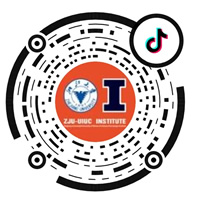Materials Informatics with Hybrid Machine Learning Methods
Materials informatics is entering the mainstream of scientific and technological exploration. It typically signifies making predictions of material structures and properties from descriptors of chemical composition and structure using machine learning (ML) techniques. For the latter, the methods used range from linear regression to kernel regressions to decision trees to neural networks with sometimes rather involved architectures and large numbers of nonlinear parameters. The data aspect of materials informatics is important, whereby sampling of the space of descriptors is bound to be sparse in sufficiently high dimensionality. This is challenging for mainstream ML methods, in particular, leading to overfitting. I will introduce hybrid approaches combining neural networks, kernel regressions, and orders-
of-coupling representations that allow effectively dealing with the challenges of data sparsity, costly nonlinear optimization, and overfitting. We obtain methods that combine the robustness of a linear regression with the expressive power of NNs and nonlinear kernel methods. I will demonstrate the advantages of such hybrid approaches on examples of material property prediction, ML-enhanced rapid prescreening of ceramics, and renewable energy system management.
Bio:Prof. Sergei Manzhos is an Associate Professor at the School of Materials and Chemical Technology, Tokyo Institute of Technology. He holds a master’s degree in radio physics and electronics from Kharkiv National University, Ukraine (1999) and a Ph.D. in chemistry from Queen’s University, Canada (2005). He was NSERC Postdoctoral Fellow at the University of Montreal, Canada, in 2005-2008. In 2008-2012 he was Project Assistant Professor at the University of Tokyo, and in 2012-2019 Assistant Professor and group leader at the Department of Mechanical Engineering, National University of Singapore. He was Associate Professor at the Centre Énergie Matériaux Télécommunications, Institut National de la Recherche Scientifique (INRS) in Quebec, Canada, before joining Tokyo Institute of Technology in 2021. His research interests include modeling of materials and interfaces for renewable energy technologies, computational spectroscopy, large-scale electron density-based methods and machine learning, including method development for these.








